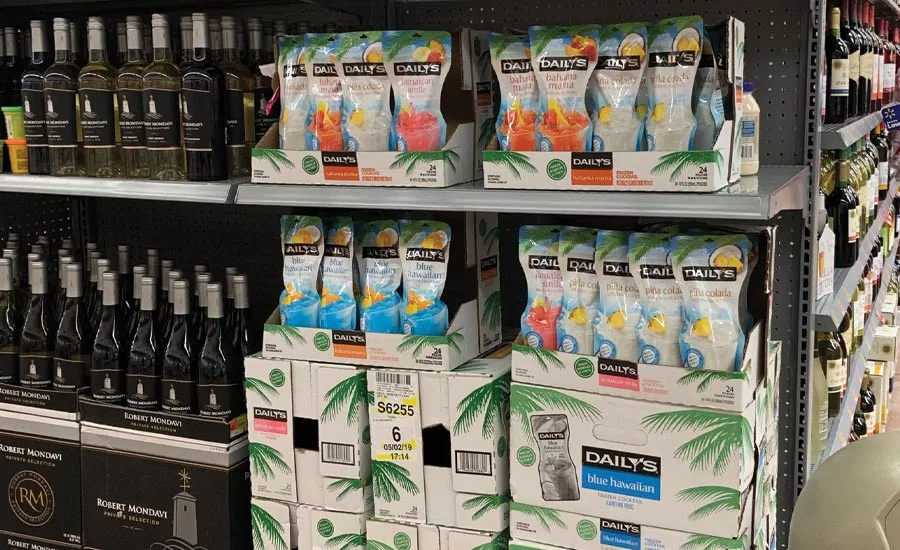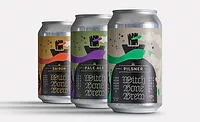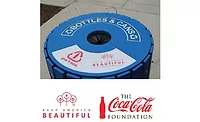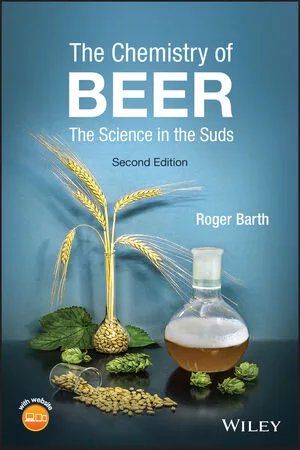Packaging
Brands aim to efficiently, sustainably package goods
Consumer trends drive increased customization, decreased waste

These days, consumers want customized product experiences and speed that also support a sustainable approach when it comes to the brands they purchase. Thus far, commerce has been keeping up, with goods hightailing it across the country at speeds and in volumes unimaginable in decades prior.
Morgan Stanley Analyst Ravi Shanker estimates that Amazon Logistics ships more than 2.5 billion packages annually in the United States and, based on a study it conducted during the course of nine years, projects that Amazon could deliver 6.5 billion packages a year by 2022.
When it comes to packaged beverages, average industry growth a year was 11.6 percent from 2014-2019, according to Los Angeles-based IBISWorld’s July 2019 report “Online Beer, Wine & Liquor Sales in the US industry trends (2014-2019).” Likewise, Hamburg, Germany-based Statista projects that beverage packaging will become a $257 billion market globally by 2023.
As a result of mixed packages, diverse SKUs and the like, beverage brands are evaluating their packaging and wrapping strategies from a variety of angles to ensure they can keep up with trends, demand and competition.
Vertical approach to sustainable packaging
According to Jessika Allmendinger, consultant at Schubert Packaging, Crailsheim, Germany, trends impacting case packers and wrappers include sustainability, agile packaging solutions, social media and eCommerce.
“The need for more sustainable packaging material may lead to an increasing popularity of case packers, as an example,” Allmendinger says. “Regarding shrink-wrapping, more environment-friendly films or packaging solutions will be required in the long-term, which might influence shrink-wrapping technology, even making it obsolete.”
“In the future, other more sustainable materials will be used instead of shrink-wrap films and finding out which — and if — new materials and technologies will function on shrink-wrappers will be a challenge,” Allmendinger says.
Rick Gessler, vice president of engineering at
St. Paul, Minn.-based Delkor Systems, explains how the packaging equipment manufacturer is poised to assist brands with carrying out these growing sustainability initiatives.
“[Delkor] fully supports companies’ need to be more sustainable and has pioneered new package designs that can significantly reduce [the] corrugated material needed to produce each package,” Gessler says. “For instance, our flagship retail-ready Cabrio Case is a patented design that saves up to 40 percent in corrugated materials compared to traditional shipping cases and boosts pallet density so companies can ship more products using fewer pallets and trucks.”
Schubert’s Allmendinger suggests that proactive packaging solutions are being adopted earlier so that more target-focused planning of packaging formats can be achieved, including standardization to avoid waste and to harmonize the process.
“If a product is packaged in different shipping, carton, and format sizes, it’s important to ask which of the packaging formats being used are really required, and which are unnecessary,” Allmendinger explains. “Oftentimes, packaging formats could be easily reduced or eliminated. Mostly, different format sizes in shipping cases means manufacturers are creating bigger order sizes by customers in a wholesale setting.”
When packaging formats can be used in a smarter way, standardization and batch sizes are key, she adds.
“Appropriate packaging formats can be kept or proactively optimized to be more sustainable,” Allmendinger says. “Once the packaging formats are standardized, it’s beneficial to count on the flexibility of packaging systems, such as Schubert’s TLM systems, in planning. For example, two format options on one packaging system, such as wraparound or shelf-ready cartons, where less formats enable more flexibility in this case, specifically regarding the shipping carton.”
Experts also note the transition to primary packaging materials that are viewed by consumers as more sustainable has impacted the secondary packaging market. For instance, the increasing use of cans in such categories as wine, water and sparkling mineral water is impacting the type of case packers and wrappers needed.
“Cans will more often be packaged into cartons, which is a significant shift from packaging for bottles,” Delkor’s Gessler explains. “The cans themselves vary more than traditional beverage cans in both diameter and height, and as a result, the secondary packaging (cartons) themselves vary more as well, from flat four-packs to hexagonal shapes.”
This diversity creates challenges in packaging design that should be addressed to ensure minimal hindrance in production and shipping, he adds.
“Combined with sustainability trends, this requires an entirely new set of standards for the beverage industry. Packaging equipment lines must be more flexible, as well as capable of packing cans versus bottles, and of packing these products into cartons or retail-ready cases depending on each retailers’ requirements,” Gessler says. “Investing in new packaging equipment technology that enables beverage companies to transition between different packaging types with short downtimes is imperative in today’s environment.”
In fact, this type of variability is what led Delkor Systems to develop new packaging systems for these applications, which are able to quickly pivot from one packaging format to another.
“Flexibility is key,” Gessler says. “Equipment lines that can transition between multiple package formats allows beverage companies to streamline their operation and reduce the need for additional equipment lines.”
More than a pretty package
Other challenges impacting packaging in the beverage category are trends influencing package design. Delkor’s Gessler notes that retail shelves are shifting with the growing adoption of retail-ready package designs, which is becoming more prominent in retail channels across various categories, including beverage, with retailers seeking to maximize shelf space and improve in-store operations.
Agile packaging solutions such as individual, personalized packaging solutions are trending because they allow quick shifts in packaging production and enable the beverage industry to generate new customers through innovative packaging designs, Schubert’s Allmendinger says.
“Today’s packaging is newer, more modern and more tailored toward the buyer,” she adds. “The content of the packaging will often even be custom-configured online.”
However, when responding to consumer demand for packaging customization, Delkor’s Gessler cautions that brands should carefully consider how many different package types they need to run in their facility and for specific products.
“If you need to run retail-ready cases, cartons and standard shipping boxes, you should ensure the system you invest in allows transitioning the equipment line easily between each package design,” Gessler says. “Delkor offers systems of this type that will meet a wide variety of packaging needs with very little downtime.”
For more specialized packaging, Delkor’s Performance Loader uses a specifically engineered puck-style handling system to handle cartons of various shapes and sizes, a benefit for manufacturers looking for ways to optimize equipment.
Gearing up for change
Nadine Hoffmann, marketing manager at Schubert North America, Charlotte, N.C., recommends that beverage manufacturers up their game when it comes to processing different films and sealing technologies on one wrapper. The equipment’s ability to be efficient and flexible in channels such as eCommerce can benefit from practices like tracking codes on cartons and packaging films, she says. Additionally, unique products from different manufacturers likely will be packed into one carton to save space and money, she adds.
“Cost reduction is another consideration, as tertiary packaging can be reduced to save costs by using shelf-ready cartons instead,” Hoffmann says. “Better utilization of pallets is then possible, reducing transports and environmental impact in the long run, as emissions are reduced along the entire chain.”
Additionally, Allmendinger notes several key challenges will affect beverage brands such as creating mixed-type and smaller-batch flexible cartons; ensuring unique carton shapes can be produced while maintaining speed and mass production; ensuring equipment meets standards and is reusable; and finding skilled specialists for operations.
“Before manufacturers make changes to their equipment set-up, they should take into account flexibility, upgradability, high-efficiency and [the] individualization of beverage packaging,” Hoffmann says. “In addition, they should consider mixed packages for added value, getting standardization wherever possible and required, and leveraging individualization.”
Although some companies might find it challenging to equally and flexibly react to all requested carton formats, equipment is evolving to integrate several format varieties on one packaging system, Hoffmann says. She also advises beverage-makers to stay on top of ongoing packaging technologies that support flexibility and sustainability so that brands can aspire to make gradual, yet impactful shifts.
In a world of fast-paced commerce, equipment suppliers can help customers accommodate the trends that are driving packaging innovations throughout the beverage market.
Looking for a reprint of this article?
From high-res PDFs to custom plaques, order your copy today!







